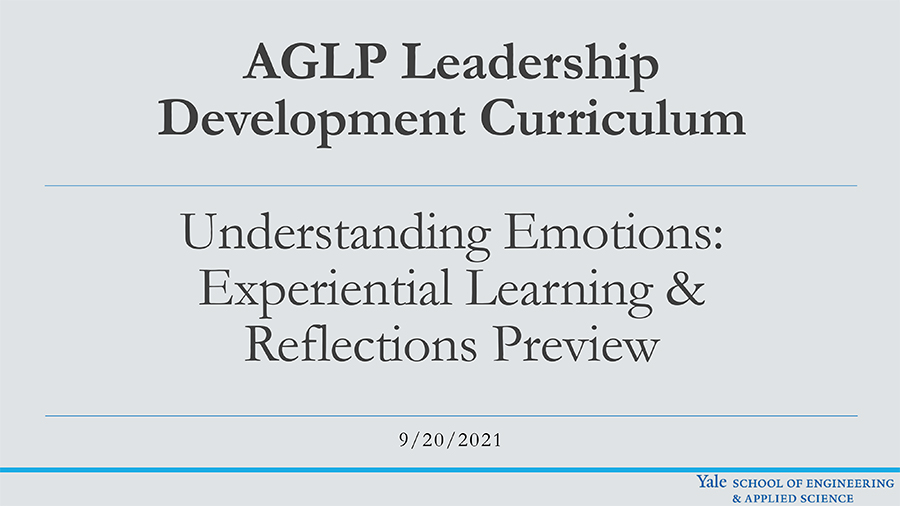Practicum Review: Understanding Emotions
Leaders with a high degree of emotional intelligence are capable of four distinct skills: mapping feelings to emotional states, matching feelings to connect with individuals as well as matching feelings to specific tasks, understanding the meeting of feelings and how they those feelings may change, and moving feelings to achieve ideal outcomes. Cognitive empathy is the ability to understand the meaning of another person’s emotions. A leader who demonstrates cognitive empathy can understand how emotions such as frustration, worry and happiness effect performance. Validation of a person’s feelings is a solid strategy to encourage dialog and facilitate discussion. A simple response “I can see how someone can feel that way” in an emotionally-focused conversation can open the door to additional conversation and increased understanding.
To understand emotions, leaders recognize that emotions result from individual reactions to universal causes. For example, the universal cause of happiness is the gain of something of value. An individual expressing happiness identifies something that they value. Frustration has the universal cause of facing an obstacle while achieving a goal, and this emotion is a potential for individuals who are striving to achieve a goal. A leader who understands emotions understands essential personal elements of those on their team.
Emotions are triggered by events, resulting in an “emotional moment.” Understanding and preparation are needed to allow an individual to make better decisions in an emotional moment. While an initial reaction may be based on inner feelings (commonly referred to as a “gut reaction”) a skilled leader will base actions on an “analyzed reaction.” This analysis reviews how someone would typically react to the situation and then question “is my reaction reasonable”, “is my reaction accurate”, and “is my reaction based on the correct assumptions”. Knowing the other person’s intent as well as an understanding of one’s general mood are also key components of a skilled reaction to an emotional moment. The EI Challenge is a summary of exhibiting sound emotional intelligence skills in real-time, with high levels of expertise, under stress, and on a consistent basis.


